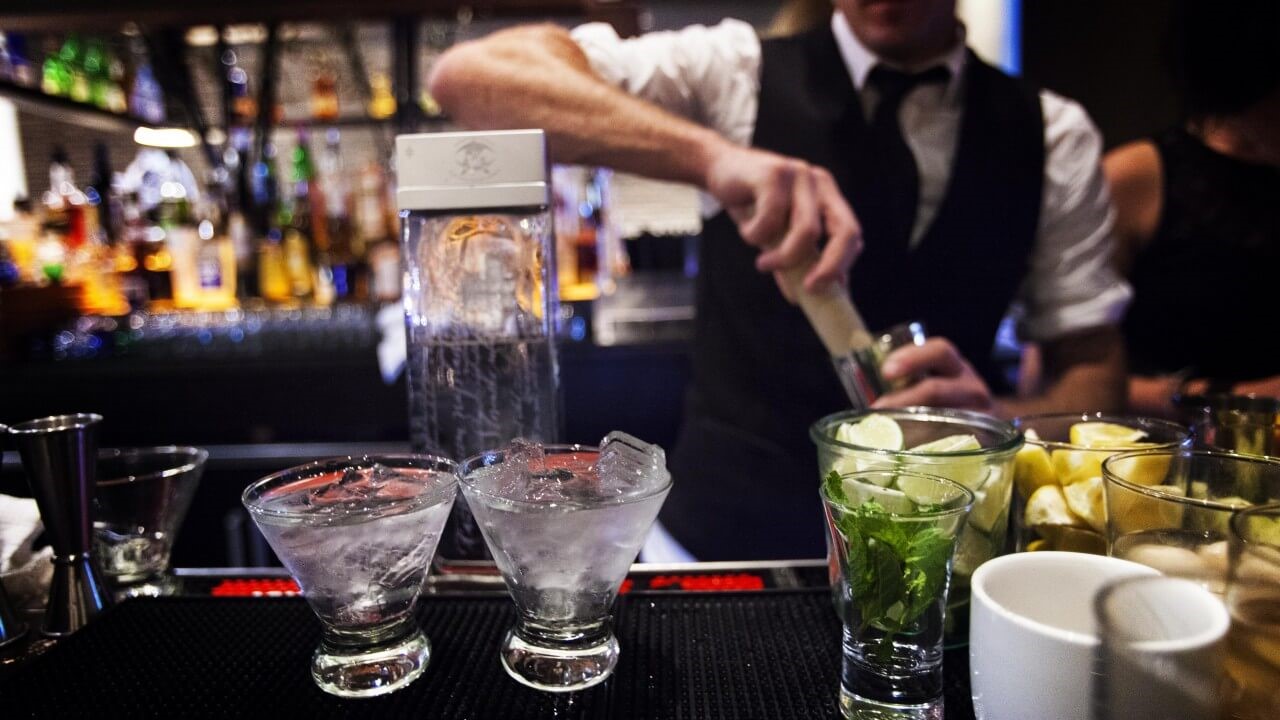

The appropriate way to tip a bartender in the UK is to say 'have one for yourself', encouraging the bartender to buy themselves a drink with one's money, where a bartender may instead opt to add a modest amount to a bill to take in cash at the end of their shift. Tipping bartenders in the United Kingdom is uncommon, not considered mandatory but is greatly appreciated by the bartender. Some pubs prefer experienced staff, although pub chains tend to accept inexperienced staff and provide training. Whereas a career bartender would know drink recipes, serving techniques, alcohol contents, correct gas mixes and licensing law and would often have cordial relations with regular customers, short-term staff may lack these skills. The high turnover of staff due to low wages and poor employee benefits results in a shortage of skilled bartenders. It therefore lacks traditional employment protections, so there is often a high turnover. In the United Kingdom, bar work is often not regarded as a long-term profession (unless the bartender is also the landlord), but more often as a second occupation, or transitional work for students to gain customer experience or to save money for university fees. By country īritish student working as a barmaid, 1990s United Kingdom Finally, because cocktails are made up of a base liquor paired with different materials, understanding the physical and chemical effects of base liquor and different materials, and thus the taste differences, is the basis for bartenders to create new drinks. In addition, the bartender also needs to give reasonable recommendations on what kind of drink the guests need to match with different foods.
National bartender day 2019 professional#
And you have to be balanced physically, emotionally and mentally.” Ī professional bartender should master the origin, physical characteristics, taste characteristics, production technology and drinking method of various alcohols, and be able to identify the quality and year of the liquor. Kathy Sullivan, owner of Sidecar Bartending, expressed the difficulties with becoming a prolific bartender, comparing the bartender to the drink they make: “In drinks you want balance. Ĭocktail competitions such as World Class and Bacardi Legacy have recognized talented bartenders in the past decade and these bartenders, and others, spread the love of cocktails and hospitality throughout the world. It includes specialized education - European Bartender School operates in 25 countries. This view of bartending as a career is changing around the world, however, and bartending has become a profession by choice rather than necessity. The reason for this is because bartenders in tipping countries such as Canada and the United States, can make significant money from their tips. The bartending profession was generally a second occupation, used as transitional work for students to gain customer experience or to save money for university fees. The industry needed a renaissance and it wasn't until the late 90's that we saw the true re-emergence of the cocktail bar.

Individualism was crushed similar to the food industry. But the general population would no longer mix their drinks. The celebrities in Los Angeles took a certain liking to the recipes of the old days. Cocktails started to be limited to the rich and famous. People drank less and the Great Depression severely limited the ability of people to buy a drink. Following the suspension of the eighteenth amendment and release of legal booze back into the market, the cocktail era unfortunately took a dip. Working in underground speakeasies, bartenders continued to provide their patrons with delicious cocktails. However, bartending culture remained alive throughout prohibition. A bartender serving customers at a bar in Jyväskylä, Finland, 1961Īfter the rise of the cocktail in the early 20th century, Americans were faced with prohibition laws from the Federal government.


 0 kommentar(er)
0 kommentar(er)
